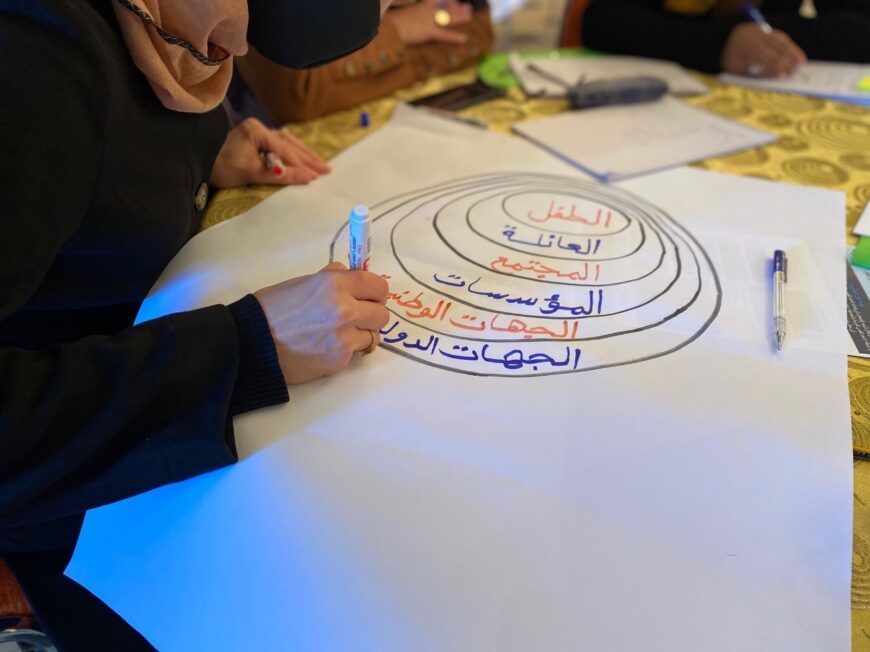A decade of conflict, economic crises, displacement, and the onset of COVID-19, have had a profound negative impact on the Libyan education system, and children’s mental and psychosocial wellbeing, particularly in Derna, Eastern Libya. The protracted crisis has also damaged teacher morale and motivation preventing them from ensuring quality education in a safe and protected environment. Despite children recognizing schools as safe places, some cases of mistreatment from teachers have been often reported by students.
ACTED rolled out a training program for 60 teachers in 4 schools in Derna and surrounding areas to enhance teachers’ knowledge on child protection and psychosocial support (PSS) and to strengthen their ability to manage stress in classrooms, especially during anxious times like the COVID-19 situation.
Ensuring sustainability of good child protection practices
Amina Ghafeer, teacher in Ebrahim Bakar School, explains: “Most of teachers think that punishment is the right way to discipline children, it was also my opinion before I took part into the training.”. In total, 15 teachers participated in the training from Ebrahim Bakar School.
Fariha is teaching in Dar Alsalam School, according to her “the repeated conflicts led to psychological traumas among children. Bullying is widespread, especially in schools. In Derna, children have limited recreational opportunities and often lack emotional care and support at school as well as at home”.
Girls and boys in Derna experience psychosocial difficulties linked to the experience of the intense conflict between 2016-2019, such as unusual crying, screaming, anti-social behaviour and unwillingness to go to school; boys also express aggressive behavior and isolation.
Improving teacher's capacities
In the past months, teachers engaged in sharing what learned with other colleagues leading to a noticeable improvement in the general protection environment in the schools, with teachers and principals undertaking new decisions and sharing information about good ways to deal with children.
During the training I learned about child psychosocial well-being and how to address bullying and violence among students and now I feel more confident in my method of teaching and dealing with children.
Mouayad Tarfaya, PSS officer in Miftah Almajri School shared the positive result of such approach: “We established new learning opportunities like opening geography and chemistry laboratories in the school that increased the students’ concentration. There was also positive change in their behaviour: some isolated children became more socializing and active”.

Through this ECHO funded project, ACTED by insisting on learners-centred pedagogy, highlights the importance of creating spaces where students are actively engaged in the learning process and where they can feel physically and emotionally safe.
